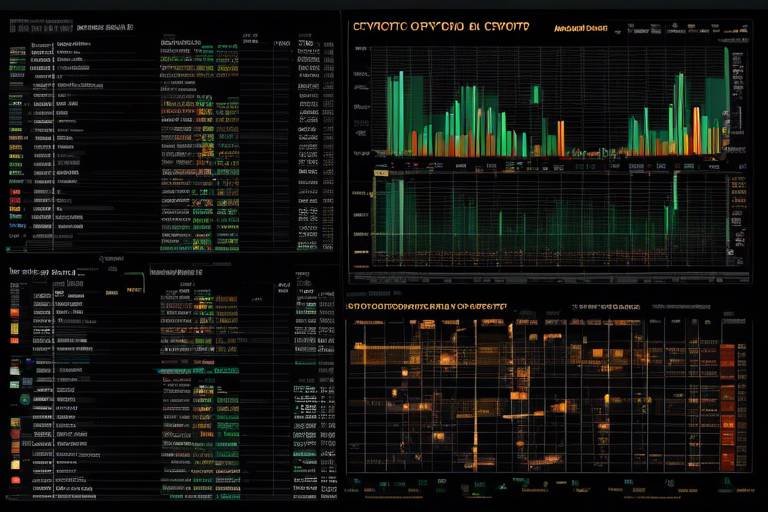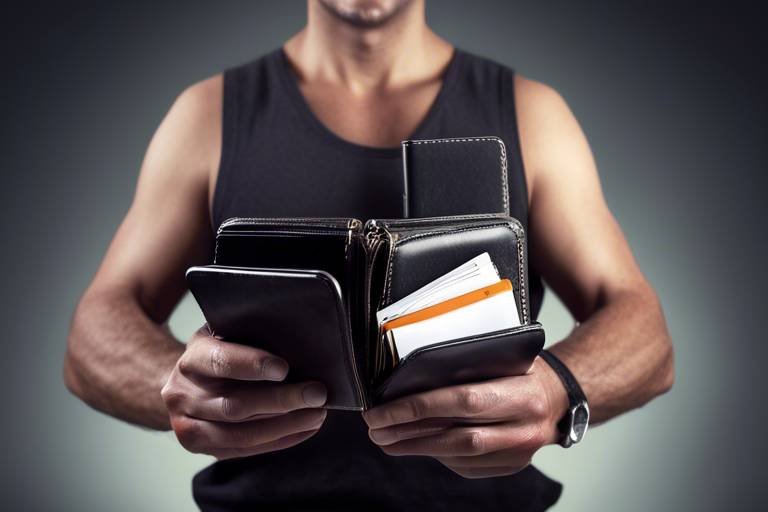How to Securely Store Your Cryptocurrency Assets
In today's digital age, cryptocurrency has emerged as a revolutionary form of investment, offering exciting opportunities for wealth creation. However, with these opportunities come significant risks, particularly concerning the security of your digital assets. As a savvy investor, understanding how to securely store your cryptocurrency is not just important—it's essential. Imagine your cryptocurrency as a treasure chest filled with valuable gems. If you don’t have the right lock and key, all those precious gems could vanish overnight. So, let's delve into the essential strategies and methods for securely storing your cryptocurrency assets, ensuring that your investments remain safe from theft and loss.
At the heart of cryptocurrency storage are wallets. Think of a cryptocurrency wallet as your personal vault. It’s where you keep your digital assets, and just like a physical vault, there are different types to choose from. Cryptocurrency wallets can be broadly categorized into three types: hot wallets, cold wallets, and hardware wallets. Each type has its own unique advantages and disadvantages, making it crucial to understand them before deciding where to store your assets.
Hot wallets are connected to the internet, making them incredibly convenient for frequent transactions. They allow you to send and receive cryptocurrency with just a few clicks. However, this convenience comes at a cost—hot wallets are more vulnerable to hacking and other security threats. On the other hand, cold wallets are not connected to the internet, providing enhanced security for long-term storage. These wallets are ideal for investors who want to hold their assets without the risk of online theft. Finally, hardware wallets are physical devices that store your cryptocurrency offline, combining the benefits of both hot and cold wallets while minimizing risks.
When it comes to selecting the appropriate wallet for your needs, you must consider several factors. Security features are paramount; after all, you wouldn’t leave your front door unlocked, would you? Look for wallets that offer strong encryption, two-factor authentication, and backup options. Accessibility is another key factor—if you’re an active trader, you might prefer a hot wallet for its ease of use. However, if you’re a long-term investor, a cold wallet could be the better choice. Lastly, ensure that the wallet you choose is compatible with the cryptocurrencies you plan to store. The last thing you want is to find out that your shiny new wallet doesn’t support your favorite coin!
Let’s dive deeper into the comparison between hot wallets and cold wallets. Hot wallets are like the bustling city streets—always alive, always moving, perfect for those who want to engage in frequent transactions. They allow you to access your funds quickly and easily, which is great for day traders or anyone who needs to make quick purchases. However, this constant connectivity does expose you to potential risks, such as phishing attacks and malware.
In contrast, cold wallets are like a serene countryside—quiet, safe, and perfect for long-term investment. By keeping your assets offline, cold wallets provide a fortress-like security that protects against hacking and theft. This makes them ideal for investors who plan to hold onto their cryptocurrency for an extended period. Ultimately, the choice between hot and cold wallets depends on your individual needs and trading habits.
Hot wallets are user-friendly and suitable for active traders. They allow quick access to funds but come with increased risks. The benefits of hot wallets include:
- Instant access to funds for trading.
- Easy integration with exchanges.
- Convenient for everyday transactions.
However, it’s essential to use them wisely and not store large amounts of cryptocurrency in a hot wallet for extended periods.
Cold wallets offer superior security by keeping assets offline. They are ideal for long-term investors who prioritize safety over convenience. The benefits of cold wallets include:
- Protection against hacking and theft.
- Peace of mind knowing your assets are stored securely.
- Ability to store multiple cryptocurrencies safely.
While they may not be as convenient for daily transactions, the security they provide is invaluable for safeguarding your investments.
Hardware wallets are the gold standard in cryptocurrency storage. These physical devices store your cryptocurrency offline, making them incredibly secure. When you use a hardware wallet, your private keys—the keys to your digital vault—never leave the device, significantly reducing the risk of online threats. Some popular hardware wallets include Ledger Nano S, Trezor, and KeepKey. Each of these offers unique features and varying levels of security, so it’s worth doing your research to find the one that suits your needs best.
Implementing best practices is vital for safeguarding your cryptocurrency. Here are some essential tips to keep in mind:
- Always use strong, unique passwords for your wallets.
- Enable two-factor authentication wherever possible.
- Regularly update your wallet software to protect against vulnerabilities.
By following these guidelines, you can significantly reduce the risk of losing your assets to theft or fraud.
Backing up your wallet is crucial to prevent loss of access to your assets. Just like you wouldn’t want to lose your house keys, you don’t want to lose access to your cryptocurrency. Create secure backups of your wallet and store them in safe locations, such as a fireproof safe or a secure cloud storage service. Regularly update these backups to ensure that you always have the latest version of your wallet.
The cryptocurrency landscape is constantly evolving, with new security threats emerging regularly. Staying informed about potential risks and updates in security practices is essential to protect your investments. Follow reputable news sources, join online forums, and participate in community discussions to keep your knowledge up to date. The more you know, the better equipped you'll be to safeguard your assets.
Q: What is the safest way to store cryptocurrency?
A: The safest way to store cryptocurrency is by using a cold wallet or hardware wallet, as they provide offline storage and protection against hacking.
Q: Can I use multiple wallets for my cryptocurrency?
A: Yes, many investors use multiple wallets to diversify their storage options, keeping some assets in hot wallets for trading and others in cold wallets for long-term holding.
Q: How often should I back up my wallet?
A: It's advisable to back up your wallet regularly, especially after making significant transactions or changes to your wallet settings.
Q: What should I do if I lose access to my wallet?
A: If you lose access to your wallet, try to recover it using your backup phrases or recovery keys. If you cannot recover it, you may need to seek professional help.
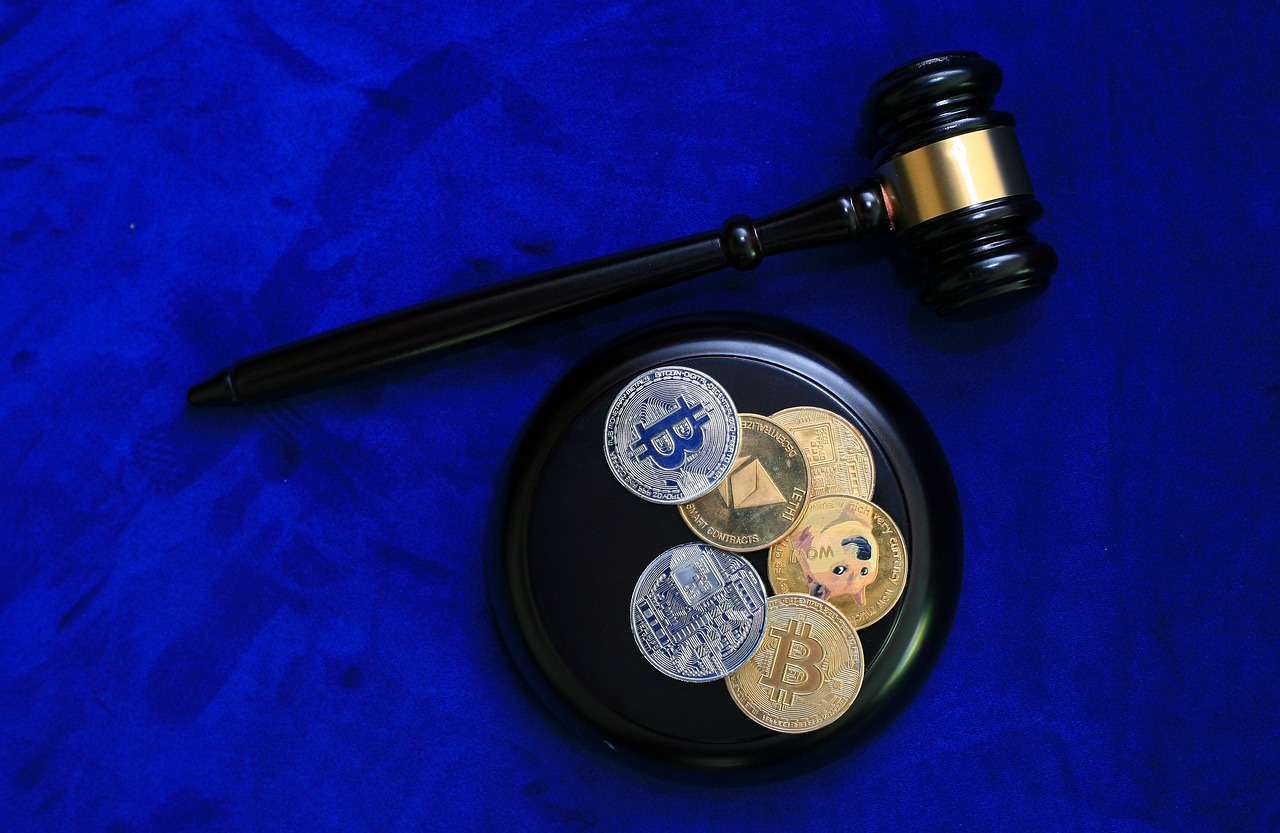
Understanding Cryptocurrency Wallets
Cryptocurrency wallets are essential tools for storing digital assets, acting as your personal vault in the vast world of cryptocurrencies. Imagine them as a digital wallet where you keep your cash, but instead of bills and coins, you're safeguarding your precious digital currencies like Bitcoin, Ethereum, and many others. However, not all wallets are created equal, and understanding the different types is crucial for anyone looking to dive into the crypto space.
There are primarily three types of cryptocurrency wallets: hot wallets, cold wallets, and hardware wallets. Each of these wallets serves a unique purpose and comes with its own set of advantages and disadvantages. Let’s break them down:
| Type of Wallet | Advantages | Disadvantages |
|---|---|---|
| Hot Wallets |
|
|
| Cold Wallets |
|
|
| Hardware Wallets |
|
|
Hot wallets, as the name suggests, are always connected to the internet, making them incredibly convenient for frequent transactions. If you're someone who likes to trade regularly or needs quick access to your funds, a hot wallet might be your best bet. However, this convenience comes at a cost; they are more susceptible to hacking and phishing attacks. It’s like leaving your front door wide open while you run to the store—sure, it’s easy to get back in, but it also leaves you vulnerable to unwanted visitors.
On the flip side, cold wallets are the fortress of the cryptocurrency world. They are not connected to the internet, which means they are much safer from online threats. Think of them as a safety deposit box in a bank—secure and protected, but not as easy to access on a whim. Cold wallets are ideal for long-term investors who want to keep their assets safe from the prying eyes of cybercriminals.
Finally, we have hardware wallets, which are a type of cold wallet but come with their own unique features. These physical devices store your cryptocurrency offline, providing an extra layer of security. They are often considered one of the safest storage options available in the market today. However, just like any physical item, they can be lost or damaged, so it's essential to handle them with care.
In summary, understanding the various types of cryptocurrency wallets is the first step toward securing your digital assets. Whether you choose the convenience of hot wallets, the security of cold wallets, or the robustness of hardware wallets, knowing their strengths and weaknesses will empower you to make the best decision for your investment strategy.
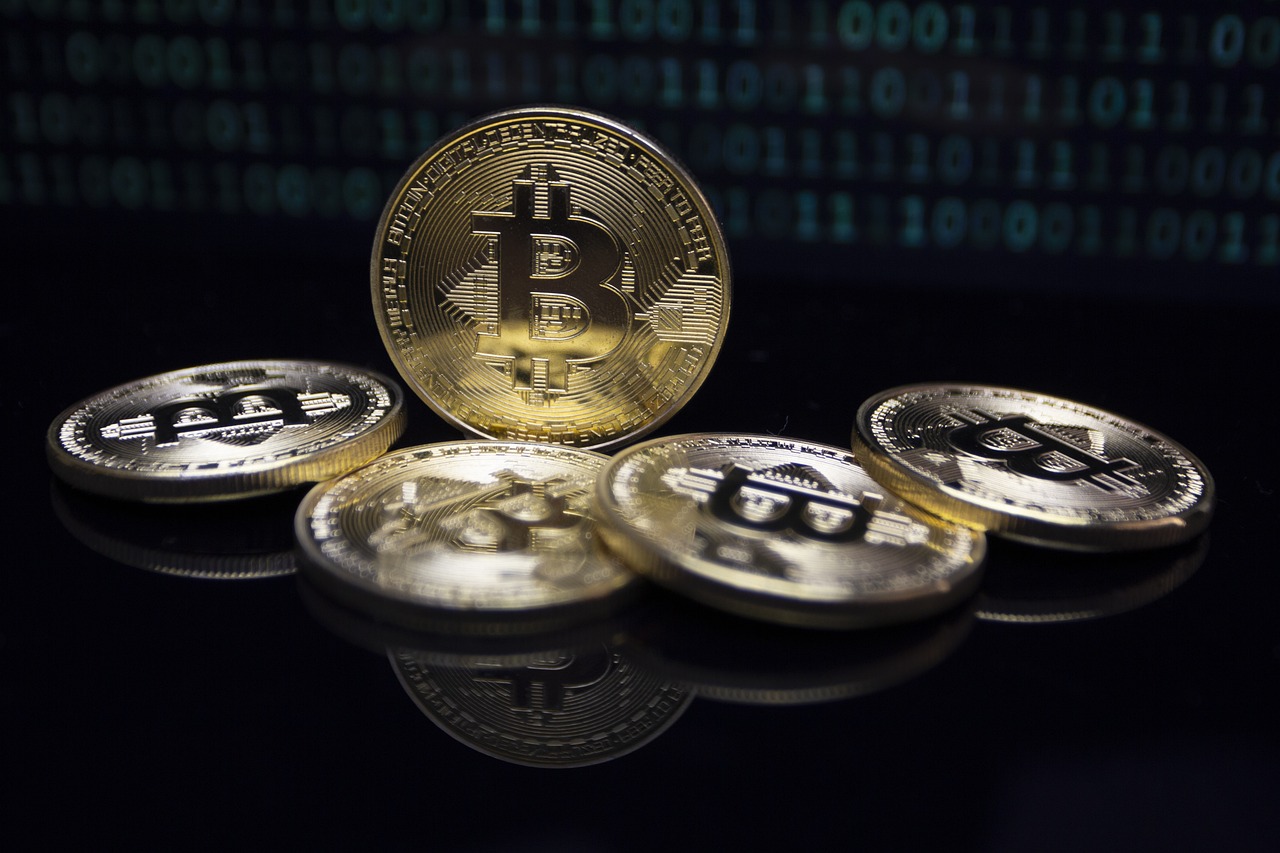
Choosing the Right Wallet
When it comes to securing your cryptocurrency assets, is like picking the right home for your valuables. Just as you wouldn’t leave your prized possessions in a flimsy box on the street, you shouldn’t store your digital currency in just any wallet. It's essential to consider several factors that can impact both the security and accessibility of your assets. Let's dive into what you should keep in mind when selecting a wallet.
First and foremost, think about security features. In the world of cryptocurrency, security is paramount. You want a wallet that provides robust protection against unauthorized access and potential hacks. Look for wallets that offer features like two-factor authentication, encryption, and backup options. These features act as your digital fortress, ensuring that your assets are safe from prying eyes.
Next, consider accessibility. Are you a frequent trader who needs quick access to your funds? Or are you more of a long-term investor who prefers to keep assets locked away for safety? Your answer will guide you towards either a hot wallet, which is convenient for daily transactions, or a cold wallet, which is better suited for long-term storage. Balancing security with accessibility is key to finding the right fit for your needs.
Another crucial factor is compatibility with various cryptocurrencies. Not all wallets support every coin out there. Before you make a decision, check if the wallet you’re considering can handle the specific cryptocurrencies you own or plan to invest in. This compatibility ensures that you won’t be left scrambling to find a new wallet later on.
To help you visualize the differences, here’s a simple comparison table:
| Wallet Type | Security Level | Accessibility | Best For |
|---|---|---|---|
| Hot Wallet | Medium | High | Active traders |
| Cold Wallet | High | Low | Long-term investors |
| Hardware Wallet | Very High | Medium | All users |
In addition to these factors, don’t forget to read user reviews and do some research on the wallet’s reputation. The cryptocurrency community is quite vocal, and you can often find valuable insights into the reliability and performance of different wallets. Remember, a well-informed choice will save you a lot of headaches down the road.
Lastly, always keep in mind that the world of cryptocurrency is constantly evolving. What works today might not be the best option tomorrow. Stay adaptable and be ready to reassess your choices as new technologies and security measures emerge. In the end, the right wallet will not only protect your assets but also give you peace of mind, allowing you to focus on growing your investments.

Hot Wallets vs. Cold Wallets
When diving into the world of cryptocurrency, one of the first decisions you'll face is choosing between hot wallets and cold wallets. Each type has its own unique characteristics, benefits, and drawbacks, making them suitable for different users and scenarios. Think of hot wallets as your everyday wallet—convenient and easy to access, but also vulnerable to pickpockets. In contrast, cold wallets are like a safe deposit box in a bank; they keep your valuables secure but require a bit more effort to access.
Hot wallets are digital wallets that are connected to the internet. They are perfect for those who engage in frequent transactions, as they allow for quick access to your funds. However, this convenience comes at a cost. The constant online presence makes hot wallets susceptible to hacking and phishing attacks. If you’re someone who trades often or needs to access your assets quickly, hot wallets might be the right choice for you. They typically come in various forms, such as:
- Web wallets: Accessible through web browsers, these wallets are easy to use but can be risky if the website is compromised.
- Mobile wallets: Apps on your smartphone that allow you to manage your cryptocurrency on the go. They offer convenience but are also vulnerable to malware.
- Desktop wallets: Software installed on your computer, providing more control than web wallets but still at risk if your computer is infected with malware.
On the flip side, we have cold wallets, which are offline storage solutions. These wallets are ideal for long-term investors who prioritize security over convenience. By keeping your assets offline, cold wallets offer a robust defense against hacking and theft. They can take several forms, including:
- Hardware wallets: Physical devices that securely store your private keys offline. They are considered one of the safest options for storing cryptocurrency.
- Paper wallets: A physical printout of your public and private keys. While they are immune to online threats, they can be easily lost or damaged.
To help you decide which option suits your needs, here’s a quick comparison:
| Feature | Hot Wallets | Cold Wallets |
|---|---|---|
| Accessibility | High - Easy to access funds | Low - Requires physical access |
| Security | Lower - Vulnerable to online threats | Higher - Offline storage protects against hacks |
| Best for | Frequent transactions | Long-term storage |
Ultimately, the choice between hot and cold wallets depends on your individual needs. If you’re actively trading and need quick access, a hot wallet may be the best fit. However, if you're looking to secure your assets for the long haul, cold wallets are the way to go. Remember, it’s not just about choosing a wallet; it’s about understanding how to use it effectively to protect your investments.
1. Can I use both hot and cold wallets?
Absolutely! Many users opt for a combination of both to balance convenience and security. You can keep a portion of your assets in a hot wallet for trading while storing the rest in a cold wallet for long-term security.
2. Are hardware wallets completely safe?
While hardware wallets are one of the safest options for storing cryptocurrency, they are not entirely foolproof. It's essential to purchase them from reputable manufacturers and keep your recovery seed secure.
3. How often should I back up my wallet?
It's a good practice to back up your wallet regularly, especially after significant changes, like receiving or sending funds. This way, you can ensure you don't lose access to your assets.

Benefits of Hot Wallets
Hot wallets are like the friendly neighborhood store of the cryptocurrency world—always there when you need them, making transactions quick and easy. They are connected to the internet, which means you can access your funds anytime, anywhere. This convenience makes them particularly appealing for active traders who thrive on market fluctuations. Imagine needing to buy a dip or sell at a high; with a hot wallet, you can make those moves in a flash!
One of the standout advantages of hot wallets is their user-friendly nature. Most hot wallets come with intuitive interfaces that even beginners can navigate without breaking a sweat. You don’t need to be a tech wizard to send or receive cryptocurrency. For instance, many hot wallets offer mobile applications, allowing you to manage your assets right from your smartphone. This level of accessibility is a significant draw for those who prefer to keep their crypto close at hand.
However, with great convenience comes great responsibility. While hot wallets are perfect for daily transactions, they also expose you to certain risks. Since they are always online, they can be vulnerable to hacking attempts and phishing scams. But don't let that scare you away! If you practice good security hygiene—like using strong passwords and enabling two-factor authentication—you can mitigate many of these risks.
To better understand the benefits of hot wallets, here’s a quick comparison:
| Feature | Hot Wallets |
|---|---|
| Accessibility | High - Available anytime via the internet |
| User Experience | Easy to use with mobile and web interfaces |
| Security Level | Moderate - Vulnerable to online threats |
| Best For | Frequent transactions and active trading |
In conclusion, hot wallets are a fantastic option for those who prioritize convenience and speed in their cryptocurrency dealings. They are ideal for traders who need to react quickly to market changes. Just remember, while they offer ease of access, always remain vigilant about security. After all, it’s not just about having your crypto at your fingertips; it’s also about keeping it safe!
- What is a hot wallet? A hot wallet is a cryptocurrency wallet that is connected to the internet, allowing for quick and easy access to your funds.
- Are hot wallets safe? While hot wallets offer convenience, they are more vulnerable to hacking and phishing attacks. It's essential to implement strong security measures.
- Who should use a hot wallet? Hot wallets are best suited for active traders and individuals who frequently make transactions.
- Can I transfer funds from a hot wallet to a cold wallet? Yes, you can easily transfer funds between different types of wallets for added security.
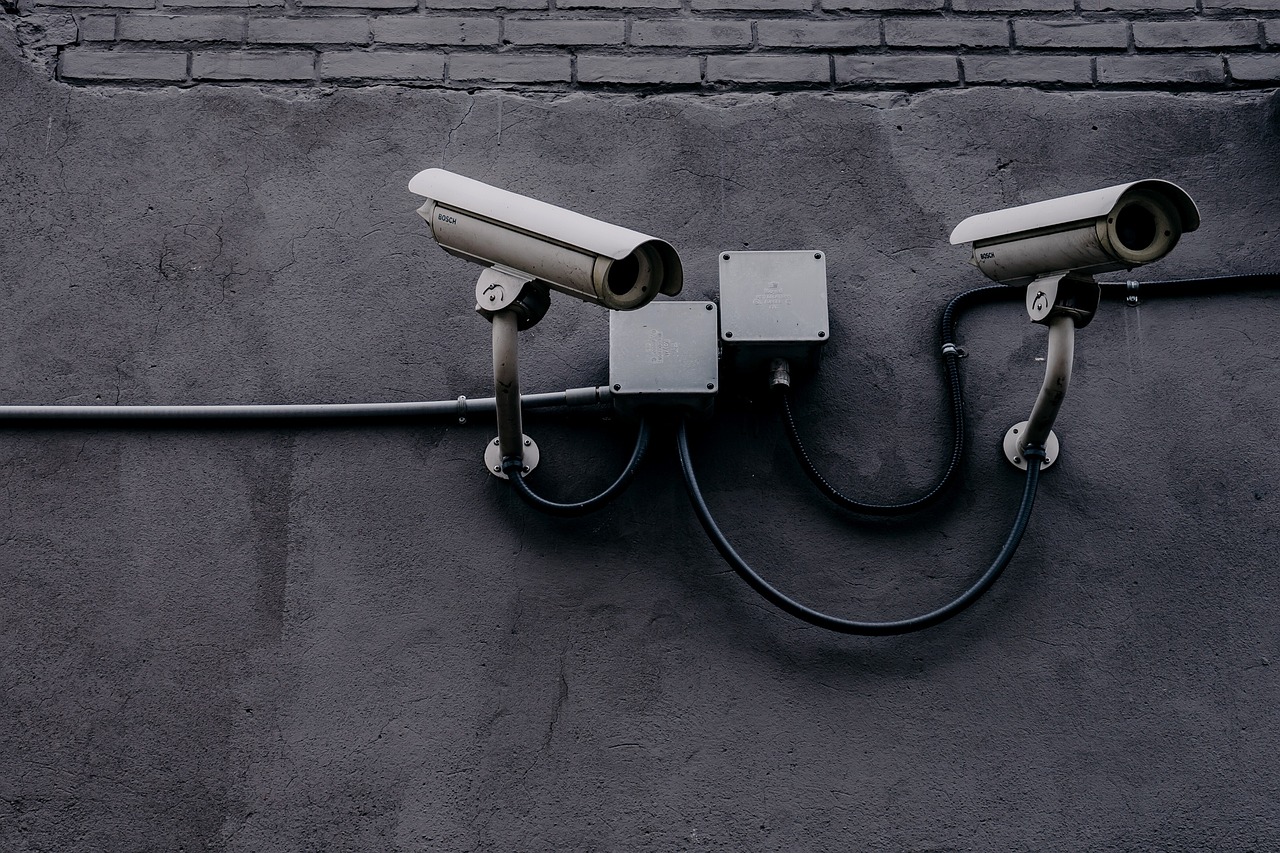
Benefits of Cold Wallets
When it comes to securely storing your cryptocurrency, cold wallets are often regarded as the gold standard. These wallets, which are not connected to the internet, provide an unparalleled level of security for your digital assets. Imagine your cryptocurrency as a treasure chest; a cold wallet is like burying that chest deep in the ground, far away from prying eyes and potential thieves. The primary benefit of using a cold wallet is that it significantly reduces the risk of hacking and unauthorized access. Since these wallets operate offline, they are immune to online attacks that can compromise hot wallets.
Another great advantage of cold wallets is their long-term storage capability. If you’re a long-term investor and you plan to hold onto your cryptocurrency for years, a cold wallet is an ideal choice. You wouldn’t want to leave your valuable assets in a place where they can easily be accessed or stolen. By using a cold wallet, you can rest easy knowing that your investment is safe from the daily fluctuations and risks associated with online trading.
Additionally, cold wallets often come with enhanced privacy features. Since they are not connected to the internet, they provide an extra layer of anonymity. This means that your transactions are not easily traceable, making it harder for anyone to track your financial activities. This level of privacy is particularly appealing for those who value their financial independence and want to keep their investment strategies private.
Moreover, cold wallets are typically built with robust security measures. Many of them include encryption and multi-signature features, which add layers of protection to your assets. For instance, a multi-signature wallet requires multiple keys to authorize a transaction, making it significantly harder for a single point of failure to jeopardize your funds. This is akin to needing multiple keys to unlock a vault, ensuring that even if one key is compromised, your assets remain secure.
To summarize, here are some of the key benefits of cold wallets:
- High Security: Offline storage drastically reduces hacking risks.
- Long-term Investment Suitability: Ideal for holding assets over extended periods.
- Enhanced Privacy: Transactions are less traceable, protecting your financial activities.
- Robust Security Features: Encryption and multi-signature options provide added protection.
In conclusion, if you’re serious about protecting your cryptocurrency investments, cold wallets are an excellent option. They may not offer the immediate accessibility of hot wallets, but the peace of mind that comes with knowing your assets are secure is invaluable. As the saying goes, "better safe than sorry," and in the world of cryptocurrency, this couldn’t be more true.
- What is a cold wallet? A cold wallet is a type of cryptocurrency wallet that is not connected to the internet, providing enhanced security for storing digital assets.
- Are cold wallets completely safe? While cold wallets offer a high level of security, no storage method is entirely risk-free. However, they are significantly safer than hot wallets.
- Can I use a cold wallet for active trading? Cold wallets are designed for long-term storage, so they are not ideal for frequent transactions. Hot wallets are better suited for active trading.
- How do I set up a cold wallet? Setting up a cold wallet usually involves purchasing a hardware device and following the manufacturer's instructions to create a secure wallet.
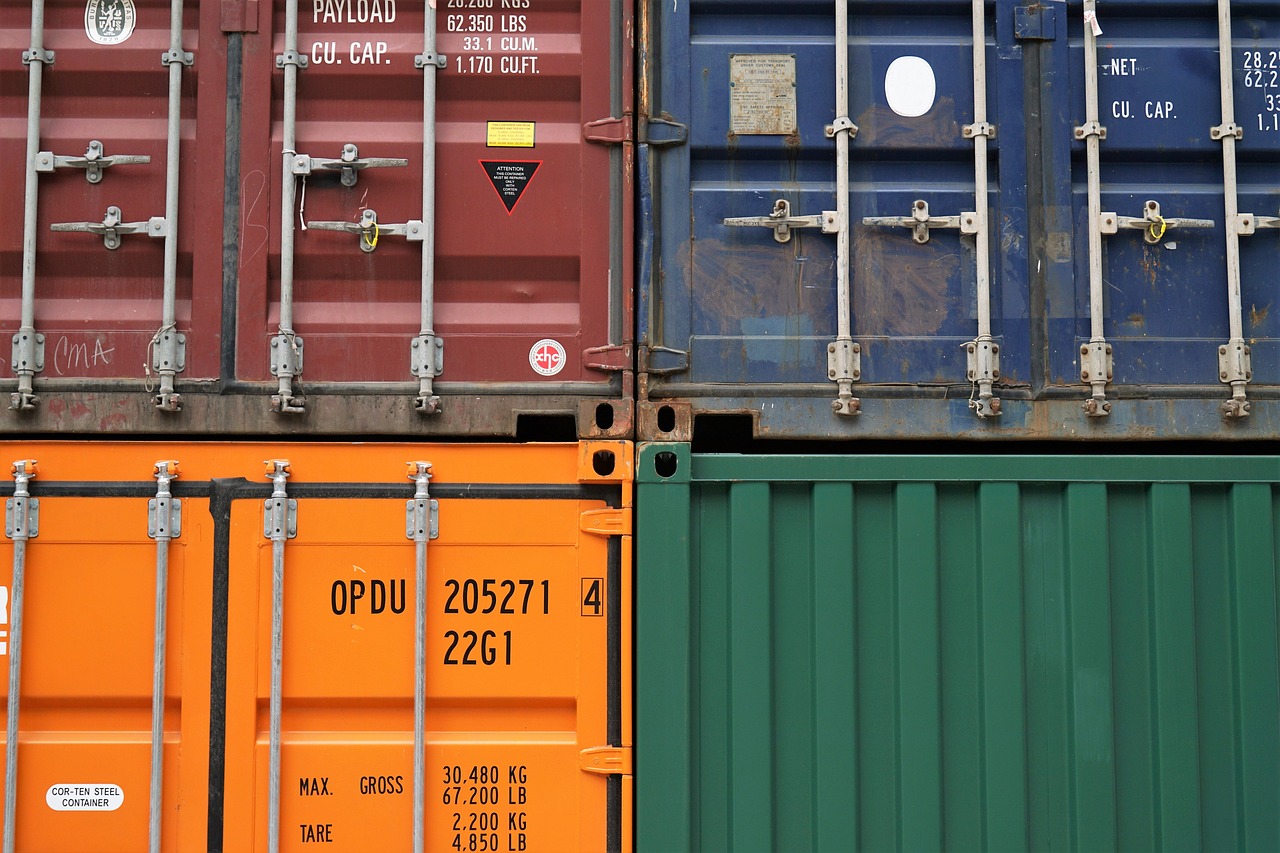
Hardware Wallets Explained
When it comes to securing your cryptocurrency, hardware wallets are often touted as the gold standard. But what exactly are they? In simple terms, a hardware wallet is a physical device that stores your digital assets offline, away from the prying eyes of hackers and malware. This makes them a highly secure option for anyone serious about protecting their investments. Think of a hardware wallet like a safe deposit box for your cryptocurrencies—it's a sturdy, reliable way to keep your treasures secure.
So, how do hardware wallets work? These devices generate and store your private keys—the critical pieces of information that allow you to access and manage your cryptocurrencies. Unlike hot wallets, which are constantly connected to the internet, hardware wallets only connect when you need to perform a transaction. This significantly reduces the risk of your assets being compromised. When you want to send or receive funds, you simply connect the device to your computer or smartphone, enter your PIN, and authorize the transaction. The beauty of this setup is that your private keys never leave the device, keeping them safe from online threats.
Now, let's delve into some of the key benefits of using hardware wallets:
- Enhanced Security: By keeping your cryptocurrencies offline, hardware wallets are less susceptible to hacking attempts, phishing scams, and malware.
- Control Over Your Assets: With a hardware wallet, you have complete ownership of your private keys, meaning you are in full control of your funds.
- Compatibility: Most hardware wallets support a wide range of cryptocurrencies, making it easy to manage multiple assets in one place.
- User-Friendly Interface: Many hardware wallets come with intuitive interfaces that simplify the process of sending and receiving cryptocurrencies.
However, it's important to note that while hardware wallets provide a high level of security, they are not entirely foolproof. If you lose your device or forget your PIN, you could potentially lose access to your funds. Therefore, it's crucial to keep your recovery seed phrase—usually a series of 12 to 24 words—stored securely. This phrase acts as a backup, allowing you to restore your wallet if needed.
In summary, hardware wallets are an excellent choice for anyone looking to securely store their cryptocurrency assets. They offer a blend of security, control, and convenience that is hard to beat. If you’re serious about investing in cryptocurrencies, investing in a hardware wallet is definitely a step in the right direction.
To wrap things up, here are some frequently asked questions about hardware wallets:
- What is the best hardware wallet? The best hardware wallet depends on your needs. Popular options include Ledger Nano S, Trezor Model T, and KeepKey.
- Are hardware wallets safe? Yes, hardware wallets are considered one of the safest ways to store cryptocurrencies, especially when compared to online wallets.
- Can I use a hardware wallet with my phone? Many hardware wallets are compatible with mobile devices, allowing you to manage your assets on the go.
- What happens if I lose my hardware wallet? If you lose your hardware wallet, you can recover your funds using your recovery seed phrase, provided you have it stored securely.

Best Practices for Secure Storage
When it comes to safeguarding your cryptocurrency assets, implementing best practices is not just a recommendation; it's a necessity. Imagine your digital currency as a treasure chest filled with valuable gems. You wouldn’t leave it unlocked in a busy marketplace, would you? Similarly, your crypto assets require robust security measures to prevent unauthorized access and potential loss. Here are some essential strategies to enhance the security of your cryptocurrency storage.
First and foremost, using strong passwords is crucial. A weak password is akin to leaving your front door wide open. Ensure that your password is a complex mix of letters, numbers, and special characters. Avoid using easily guessable information like birthdays or common words. Consider using a password manager to generate and store complex passwords securely.
Another layer of security you should adopt is two-factor authentication (2FA). This is like having a second lock on your treasure chest. With 2FA, even if someone manages to get hold of your password, they won't be able to access your wallet without the second form of verification, which could be a text message or an authentication app. This simple step significantly reduces the risk of unauthorized access.
Regularly updating your software is also vital. Just like you wouldn’t drive a car without regular maintenance, your wallets and devices need updates to protect against vulnerabilities. Software updates often include security patches that fix known issues, so always ensure your wallet software is up to date. It’s a small effort that can save you from significant losses.
Additionally, consider the importance of secure backups. Imagine losing the key to your treasure chest; it would be devastating. Backing up your wallet ensures you can regain access to your assets even if your device fails. Create secure backups of your wallet and store them in multiple safe locations, such as encrypted USB drives or even a safe deposit box. Remember, the best backup strategy is one that combines both digital and physical storage methods.
Moreover, staying informed about security threats is crucial in the ever-evolving cryptocurrency landscape. New vulnerabilities and scams emerge regularly, and being aware of these threats can help you avoid falling victim to them. Follow reputable news sources and forums dedicated to cryptocurrency to keep yourself updated. Engaging with the community can also provide insights into the latest security practices and tools.
In summary, securing your cryptocurrency assets is not just about choosing the right wallet; it involves a comprehensive approach to digital security. By following these best practices, you can significantly reduce the risk of theft and loss. Always remember, in the world of cryptocurrency, vigilance and proactive measures are your best friends.
Here are some common questions about securely storing cryptocurrency assets:
- What is the safest way to store cryptocurrency? The safest way is to use a cold wallet, such as a hardware wallet, which keeps your assets offline.
- How often should I back up my wallet? It's advisable to back up your wallet whenever you make significant changes or transactions. Regular backups ensure you don’t lose access.
- Is two-factor authentication necessary? Yes, 2FA adds an essential layer of security and is highly recommended for all cryptocurrency wallets.
- Can I recover my cryptocurrency if I lose access to my wallet? If you've backed up your wallet and have your recovery phrase, you can regain access. However, without these, recovery may not be possible.

Regular Backups
Backing up your cryptocurrency wallet is not just a good idea; it's an absolute necessity. Imagine losing access to your hard-earned digital assets because of a simple mishap or a technical glitch. It’s a nightmare scenario that can happen to anyone, and the best way to prevent it is through regular backups. Think of it as your insurance policy against unforeseen circumstances. By creating backups, you ensure that even if your device fails or you accidentally delete your wallet, you can still recover your assets.
So, how do you go about making these backups? First, it’s essential to understand that the backup process may vary depending on the type of wallet you are using. For instance, if you’re using a hot wallet, the backup might involve exporting your private keys or seed phrases. On the other hand, cold wallets often come with their own backup procedures, which can include writing down recovery phrases on paper. Remember, paper is often more secure than digital storage when it comes to sensitive information.
Here’s a quick rundown of the steps you should follow to create secure backups:
- Identify Your Wallet Type: Determine whether you are using a hot wallet, cold wallet, or hardware wallet.
- Export Your Keys: For hot wallets, look for an option to export your private keys or seed phrases.
- Write It Down: If your wallet provides a recovery phrase, write it down on paper and store it in a safe place.
- Use Multiple Locations: Consider creating multiple copies and storing them in different secure locations.
It’s crucial to store your backups securely. A fireproof safe, a safety deposit box, or even a trusted friend’s house can serve as excellent locations for your backup copies. Just remember, the more secure the location, the less likely it is that someone will gain unauthorized access to your sensitive information.
Moreover, don’t forget to regularly update your backups. Whenever you make a significant change to your wallet, such as adding new assets or changing your security settings, ensure that you also update your backup. This way, you’ll always have the most current information to rely on in case of an emergency.
In summary, regular backups are a simple yet effective way to safeguard your cryptocurrency assets. By taking the time to create and maintain backups, you can enjoy peace of mind knowing that your investments are secure, no matter what happens. So, make it a habit to back up your wallet regularly and keep your financial future safe.
Q: How often should I back up my cryptocurrency wallet?
A: It is recommended to back up your wallet every time you make a significant transaction or change your security settings.
Q: What should I do if I lose my backup?
A: If you lose your backup, recovery may be impossible if you do not have your private keys or recovery phrase. Always keep multiple backups in secure locations.
Q: Can I back up my wallet using cloud storage?
A: While cloud storage is convenient, it is generally not recommended for sensitive information like cryptocurrency backups due to security risks. Opt for physical storage methods instead.

Staying Informed About Security Threats
In the ever-evolving world of cryptocurrency, staying informed about security threats is not just a good practice—it's a necessity. The digital landscape is like a bustling city, full of opportunities but also lurking dangers. Just as you wouldn't walk down a dark alley without a flashlight, you shouldn't navigate the crypto space without being aware of potential risks. Cybercriminals are constantly developing new techniques to exploit vulnerabilities, making it essential to keep your knowledge up-to-date.
One effective way to stay informed is by following reputable sources of information. Websites, blogs, and forums dedicated to cryptocurrency often share the latest news on security threats and best practices. Subscribing to newsletters from these sources can provide you with timely updates directly to your inbox. Additionally, engaging with the community on platforms like Reddit or Twitter can offer real-time insights into emerging threats.
Another critical aspect is to regularly review the security features of the wallets and exchanges you use. Security protocols can change, and what was safe yesterday might not be today. Always check for updates and ensure that you are utilizing the latest security measures. For instance, many wallets have implemented advanced features such as multi-signature transactions or biometric authentication, which can significantly enhance your security.
Moreover, consider setting up alerts for any unusual activity on your accounts. This proactive approach can help you catch potential breaches early, allowing you to take action before significant damage occurs. Just like a smoke detector can save your home from a fire, these alerts can safeguard your cryptocurrency assets.
In summary, knowledge is your best defense against security threats in the cryptocurrency world. By staying informed, engaging with the community, and regularly updating your security practices, you can protect your investments from the ever-present risks that accompany digital assets. Remember, in the realm of cryptocurrency, being proactive is the key to security!
- What are the most common security threats to cryptocurrencies? Common threats include phishing attacks, malware, and hacking attempts on exchanges and wallets.
- How often should I update my wallet's security features? It's advisable to check for updates regularly, at least once a month, or whenever a significant vulnerability is reported.
- Can I recover my cryptocurrency if I lose access to my wallet? If you have backed up your wallet and have access to your recovery phrase, you can typically recover your funds.
Frequently Asked Questions
- What is a cryptocurrency wallet?
A cryptocurrency wallet is a digital tool that allows you to store, send, and receive cryptocurrencies. It can be software-based (hot wallets) or hardware-based (cold wallets), and each type has its own unique features and levels of security.
- What are the differences between hot wallets and cold wallets?
Hot wallets are connected to the internet, making them convenient for quick transactions but more vulnerable to hacking. Cold wallets, on the other hand, store your assets offline, providing enhanced security against online threats, making them ideal for long-term storage.
- How do I choose the right wallet for my needs?
When selecting a wallet, consider factors like security features, ease of use, and the types of cryptocurrencies you plan to store. If you trade frequently, a hot wallet may be suitable, while a cold wallet is better for long-term holding.
- Are hardware wallets really safe?
Yes! Hardware wallets are considered one of the safest storage options for cryptocurrencies because they keep your private keys offline and away from potential online threats. They are highly recommended for serious investors.
- What are some best practices for securing my cryptocurrency?
To secure your cryptocurrency, use strong, unique passwords, enable two-factor authentication, and regularly update your wallet software. Additionally, create regular backups of your wallet and store them in a safe place.
- How often should I back up my wallet?
You should back up your wallet regularly, especially after making significant changes or transactions. This ensures that you can recover your assets if you lose access to your wallet.
- What should I do if I suspect my wallet has been compromised?
If you suspect your wallet has been compromised, immediately transfer your assets to a new wallet with fresh security measures. Change your passwords and enable two-factor authentication to enhance your security.
- How can I stay informed about security threats in cryptocurrency?
Stay informed by following reputable cryptocurrency news websites, joining community forums, and subscribing to security updates from your wallet provider. Knowledge is your best defense against emerging threats!



